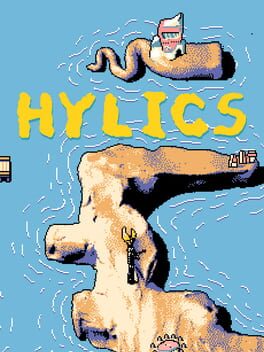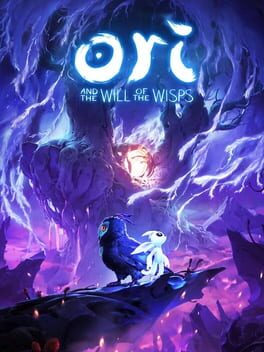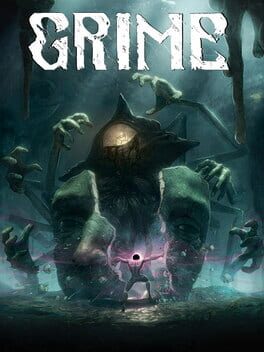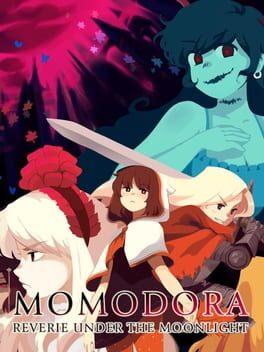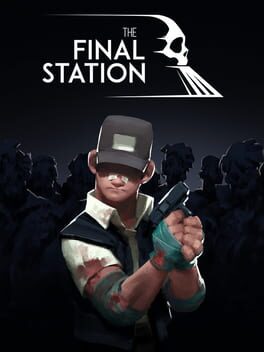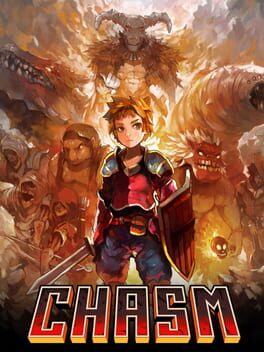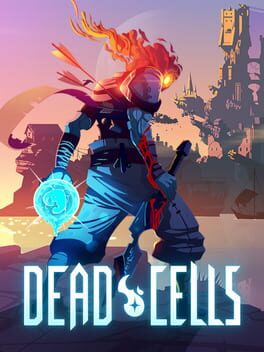2022
Truly remarkable little gem of a point-and-click horror game just dripping with atmosphere and style.
I'm a sucker for horror stories that blend the scientific and the occult, and this hits that perfect sweet spot for me. Half the game is spent reading scientific reports on a shapeshifting demonic entity, wherein procedural documents instructing the experimenters to don mirrored aprons and masks when interacting with the creature read more like ritual than research, and talk of stem cells, stimuli responses, growth cycles and metacognition is interspersed with beguiling neologisms like "anthropoidic seal," "desirous yield," and "morphallactic nucleus." Early in the game you discover the [original] grandpa's PhD dissertation, and the title alone—"Eurasian Steppe Shamanism and the Fusiform Gyros: An Interdisciplinary Study in Sympathetic Magic"—was enough to make me giddy.
I think what surprised me most was how intelligent and literary the writing was. The game presents you with a whole array of texts from a variety of different genres and modes—from the aforementioned experimental transcripts, to the school counselor's report that serves as the frame story, to the dialogue of the grade school-aged protagonist and of the "grandpa" entity itself at various stages of development, to the visceral and unsettling descriptions of the world as you observe and interact with it—and each is written in a distinct style and register, each evocative in its own way. This sort of layered narration cleverly creates suspense, pathos, and dread by giving the player fuller knowledge than any of the more limited narrators possess (i.e. Adrienne, who's too young to understand the big words in the texts she finds, or the counselor, who only experiences things secondhand and assumes them to be a sort of dream language).
The "polyphonic" narration also lends itself to thematic complexity and subtlety. Many horror games aim merely to scare you or to creep you out, or else they have a clear and simple thesis statement to impart. Yames smartly leaves his conceptual ends loose, but through this assemblage of texts he touches on themes of self-formation, desire, family, loneliness, grief, sacrifice, repression, abjection, bodily transformation, and more. The bar for "good writing" in video games is so low, that it's a genuine revelation to encounter a developer not only in possession of a full vocabulary, but who has clearly read some anthropology, psychology, etc and is able to draw on this to create something conceptually rich that leaves me thinking about it long after its short play time.
I leave off half a star here only because the gameplay does leave something to be desired. This is essentially a fully linear experience with no failure states (though with two possible endings). Which wouldn't necessarily be an issue if the core game mechanic—repeatedly picking up pieces of trash and placing them in a trash bin—wasn't so tedious. The mechanics of interacting with the "grandpa"—feeding him and teaching him new vocabulary—hardly qualify as gameplay at all, and yet the UI itself for these segments is so expressive and original (and disgusting) that I don't really mind.
In short: Growing My Grandpa made my skin crawl and my brain tingle. Highly recommended!
I'm a sucker for horror stories that blend the scientific and the occult, and this hits that perfect sweet spot for me. Half the game is spent reading scientific reports on a shapeshifting demonic entity, wherein procedural documents instructing the experimenters to don mirrored aprons and masks when interacting with the creature read more like ritual than research, and talk of stem cells, stimuli responses, growth cycles and metacognition is interspersed with beguiling neologisms like "anthropoidic seal," "desirous yield," and "morphallactic nucleus." Early in the game you discover the [original] grandpa's PhD dissertation, and the title alone—"Eurasian Steppe Shamanism and the Fusiform Gyros: An Interdisciplinary Study in Sympathetic Magic"—was enough to make me giddy.
I think what surprised me most was how intelligent and literary the writing was. The game presents you with a whole array of texts from a variety of different genres and modes—from the aforementioned experimental transcripts, to the school counselor's report that serves as the frame story, to the dialogue of the grade school-aged protagonist and of the "grandpa" entity itself at various stages of development, to the visceral and unsettling descriptions of the world as you observe and interact with it—and each is written in a distinct style and register, each evocative in its own way. This sort of layered narration cleverly creates suspense, pathos, and dread by giving the player fuller knowledge than any of the more limited narrators possess (i.e. Adrienne, who's too young to understand the big words in the texts she finds, or the counselor, who only experiences things secondhand and assumes them to be a sort of dream language).
The "polyphonic" narration also lends itself to thematic complexity and subtlety. Many horror games aim merely to scare you or to creep you out, or else they have a clear and simple thesis statement to impart. Yames smartly leaves his conceptual ends loose, but through this assemblage of texts he touches on themes of self-formation, desire, family, loneliness, grief, sacrifice, repression, abjection, bodily transformation, and more. The bar for "good writing" in video games is so low, that it's a genuine revelation to encounter a developer not only in possession of a full vocabulary, but who has clearly read some anthropology, psychology, etc and is able to draw on this to create something conceptually rich that leaves me thinking about it long after its short play time.
I leave off half a star here only because the gameplay does leave something to be desired. This is essentially a fully linear experience with no failure states (though with two possible endings). Which wouldn't necessarily be an issue if the core game mechanic—repeatedly picking up pieces of trash and placing them in a trash bin—wasn't so tedious. The mechanics of interacting with the "grandpa"—feeding him and teaching him new vocabulary—hardly qualify as gameplay at all, and yet the UI itself for these segments is so expressive and original (and disgusting) that I don't really mind.
In short: Growing My Grandpa made my skin crawl and my brain tingle. Highly recommended!
2020
2017
2021
2015
It's less polished and less fleshed out than Hylics 2, yes. But for how much I'd heard this described as a quirky little oddity or throwaway prankster experiment in comparison to its sequel, I was surprised at just how rich and enjoyable a gaming experience it wound up being.
It does, however, lean much further into being a parody of the JRPG genre (while at the same time toying with the genre's mechanics in genuinely interesting and creative ways). Lindroth seems to take a sort of impish, anarchic glee in "breaking" the genre's fundamental systems or rendering them pointless and absurd.
Near the end of the game, for instance, you walk into a room, open some chests, and are suddenly given what for all intents and purposes amounts to an infinite amount of money — a completely random, unearned, hilariously disproportionate "reward" for doing basically nothing at all. The game's biggest laugh-out-loud moment for me occurs when you defeat the final boss, upon which you're again given "999999 BUCKS" (which you now have no reason to spend), as well as "A HOT DOG," and are informed that you've gained "999999 EXP" and that all of your party members have now reached "LEVEL 63." Neither experience nor levels have been mentioned at all in the game prior to this moment.
The implicit message seems to be: none of this matters! You didn't play this game because you want to crunch numbers¹ or to fight repetitive battles until your avatar is as souped up and powerful as possible. You played it so that you could have the experience of being a weird little yellow guy with a moon for a head, wandering around a dithered 8-bit clay world, squashing vegetables, petting cats, watching trippy animations, and listening to NPCs with goofy walk cycles recite gobbledygook flavor text. And on that front? Hylics delivers.
I can't wait for Hylics 3.
¹For an example of weird JRPG parody that goes the opposite direction and leans waaaaay into the number crunching, check out the games of Damien Crawford!
It does, however, lean much further into being a parody of the JRPG genre (while at the same time toying with the genre's mechanics in genuinely interesting and creative ways). Lindroth seems to take a sort of impish, anarchic glee in "breaking" the genre's fundamental systems or rendering them pointless and absurd.
Near the end of the game, for instance, you walk into a room, open some chests, and are suddenly given what for all intents and purposes amounts to an infinite amount of money — a completely random, unearned, hilariously disproportionate "reward" for doing basically nothing at all. The game's biggest laugh-out-loud moment for me occurs when you defeat the final boss, upon which you're again given "999999 BUCKS" (which you now have no reason to spend), as well as "A HOT DOG," and are informed that you've gained "999999 EXP" and that all of your party members have now reached "LEVEL 63." Neither experience nor levels have been mentioned at all in the game prior to this moment.
The implicit message seems to be: none of this matters! You didn't play this game because you want to crunch numbers¹ or to fight repetitive battles until your avatar is as souped up and powerful as possible. You played it so that you could have the experience of being a weird little yellow guy with a moon for a head, wandering around a dithered 8-bit clay world, squashing vegetables, petting cats, watching trippy animations, and listening to NPCs with goofy walk cycles recite gobbledygook flavor text. And on that front? Hylics delivers.
I can't wait for Hylics 3.
¹For an example of weird JRPG parody that goes the opposite direction and leans waaaaay into the number crunching, check out the games of Damien Crawford!
So before I moved to Southern California I almost never ate fast food. Living in New York if I needed something cheap and fast in the middle of the night I'd just get a slice of pizza, or maybe Chinese food, hell maybe even a bodega sandwich. Then I moved out here and started grad school and found myself eating Taco Bell or Jack in the Box 2 or 3 nights a week because it was the only thing open at 1 in the morning. I guess it became a habit because now getting fast food and eating in my car in the parking lot next to the drive-thru is like a weekly occurrence. My go-to spots are Taco Bell, Wendy's, Popeyes, and In-N-Out, and I can't really eat at Jack in the Box anymore cause I had too many of the gnarly 2-for-a-dollar tacos and now everything from there makes me nauseous. (Psychosomatic?) When I first moved here I'd never tried Del Taco before, and my first experience I remember being like "this is awful, it tastes like nothing." The mild sauce tastes like someone literally just squeezed a tomato onto your food and the hot sauce tastes exactly the same but it makes your tongue tingle. The ingredients are all pretty fresh. Unlike Taco Bell it doesn't feel like you're eating a simulacrum of human food. It just kind of feels like someone made one of those Old El Paso taco kits, but they somehow lost the seasoning packet so they had to raid their own spice cabinet but all they had was salt and some cumin powder that expired 3 years ago. After that first experience I figured I'd never eat there ever again. But every once in a blue moon I'll find myself getting a craving for it. I eat at Del Taco probably once every 3 or 4 months now, and it's nice. I wouldn't say it's "good" or "tasty," but in some weird way it hits the spot.
ANYWAY! This was like... fine? Got to the final boss and kind of just didn't feel like finishing. But it wasn't a bad experience, just kind of a bland one. If they ever make a sequel I'll probably play it.
The controls are tight. Cool, diverse skill set. The enemy and level design are nothing special but aren't terrible. Some decently challenging boss fights. Lots of goodies to collect. A little on the linear side for a Metroidvania. The art is really well done, if not exactly my taste.
Does not tug on the heart strings or 'make ya think' as much as it seems to think it does. There's an area of the map filled with poison gas that quickly kills you if you don't have a special mask item, and it's straight up called "The Verboten Domain." That's the level of poetry we're talkin' about here lol
Also: Games have GOT to stop doing the Dark Souls "have a bunch of flavor text vaguely point toward a story rather than just telling you a story outright" thing unless they actually know how to write evocatively and have a lore that's WORTH BEING CURIOUS ABOUT!! Like idk, I'm an obsessive completionist so I picked up all of the notes or letters or engravings or what have you and what I can tell you is that this game is about princesses. Who are sort of like clones, maybe? And there was like a plague or some shit, for sure. Turned people into zombies, sort of? A king went mad at some point, definitely. I don't know who "The Ancients" are but they're definitely important. And some well meaning (?) wizards did some evil experiments or something? Whatever, who care.
✨𝒄𝒖𝒆 𝒕𝒘𝒊𝒏𝒌𝒍𝒚 𝒑𝒊𝒂𝒏𝒐 𝒎𝒖𝒔𝒊𝒄 𝒂𝒏𝒅 𝒈𝒍𝒐𝒘𝒚 𝒑𝒂𝒓𝒕𝒊𝒄𝒍𝒆 𝒆𝒇𝒇𝒆𝒄𝒕𝒔✨
ANYWAY! This was like... fine? Got to the final boss and kind of just didn't feel like finishing. But it wasn't a bad experience, just kind of a bland one. If they ever make a sequel I'll probably play it.
The controls are tight. Cool, diverse skill set. The enemy and level design are nothing special but aren't terrible. Some decently challenging boss fights. Lots of goodies to collect. A little on the linear side for a Metroidvania. The art is really well done, if not exactly my taste.
Does not tug on the heart strings or 'make ya think' as much as it seems to think it does. There's an area of the map filled with poison gas that quickly kills you if you don't have a special mask item, and it's straight up called "The Verboten Domain." That's the level of poetry we're talkin' about here lol
Also: Games have GOT to stop doing the Dark Souls "have a bunch of flavor text vaguely point toward a story rather than just telling you a story outright" thing unless they actually know how to write evocatively and have a lore that's WORTH BEING CURIOUS ABOUT!! Like idk, I'm an obsessive completionist so I picked up all of the notes or letters or engravings or what have you and what I can tell you is that this game is about princesses. Who are sort of like clones, maybe? And there was like a plague or some shit, for sure. Turned people into zombies, sort of? A king went mad at some point, definitely. I don't know who "The Ancients" are but they're definitely important. And some well meaning (?) wizards did some evil experiments or something? Whatever, who care.
✨𝒄𝒖𝒆 𝒕𝒘𝒊𝒏𝒌𝒍𝒚 𝒑𝒊𝒂𝒏𝒐 𝒎𝒖𝒔𝒊𝒄 𝒂𝒏𝒅 𝒈𝒍𝒐𝒘𝒚 𝒑𝒂𝒓𝒕𝒊𝒄𝒍𝒆 𝒆𝒇𝒇𝒆𝒄𝒕𝒔✨
2022
Citizen Sleeper is an object lesson in making magic with limited means. The game assets essentially consist of a single 3D model of a space station, two and a half dozen beautifully hand-drawn character portraits, an evocative soundtrack, and lots and lots of text. Yet I found myself gripped by and emotionally invested in this story, this world, and these characters. This is the second time in my life I've ever teared up while playing a game (the first being Disco Elysium).
But in spite of falling completely in love with this game, there is one thing that keeps nagging at me after finishing it. Citizen Sleeper is also an object lesson in something else: ludo-narrative dissonance.
Rather than add on to the heaps of praise this game has gotten (with which I wholeheartedly agree but to which I have little new to add), I want to take the space of this review to dig into what I see as its one primary shortcoming. Not because this shortcoming diminishes my enthusiasm for the game in any significant way (I still recommend it without reservation), but because it illuminates for me a potential shortcoming of the genre (or even medium) as a whole, and has spurred me to reflect on its limitations and possibilities.
Here's the long and short of it: Despite its overt anti-capitalist themes—evil multi-planetary megacorporations, neo-slavery, anarcho-communist self-organization, refugee solidarity, the trials & tribulations of the gig economy—I began to realize about halfway through playing it that the game ends up being one of the most effective pieces of capitalist propaganda I've ever encountered. The inevitable trajectory the player ends up taking is from a destitute and precarious escaped slave living on borrowed time—their very body a piece of corporate property and their labor their only means for survival—to a secure, stable, and potentially prosperous member of the petit-bourgeosie.
In other words, this is a quintessential "rags to riches" story. Whatever its apparent radicalism, at the end of the day Citizen Sleeper is Horatio Alger in Space.
In his book Experimental Games: Critique, Play, and Design in the Age of Gamification, game designer and theorist Patrick Jagoda writes about the neoliberal value of "entrepreneurship of the self" enacted by Stardew Valley (a more short form articulation of his thesis can be found in this essay). Citizen Sleeper very much exists in this same mode. The only way to progress is by pulling yourself up by your cybernetic, ceramic-plated bootstraps, cycle by cycle, gig by gig, sidequest by sidequest, until you eventually find yourself the sole proprietor of a bar & restaurant, owner of 5 different homes, awash in cryptocurrency, with multiple means to counteract the ticking timebomb in your body that keeps you tethered to your corporate owners: precarity successfully overcome.
At one point, you're given the opportunity to ingratiate yourself with an agrarian commune. Put in enough volunteer hours on the communal farm or canteen and you're offered a coveted spot in the commune itself, triggering the "COMMUNIST" achievement. I had to laugh. Despite some flavor text about commune members being expected to work recurring shifts in exchange for meals, practically speaking these shifts function hardly any differently from many of the other possible gigs one can pick up around the station, and there is no consequence whatsoever for shirking your comradely duties entirely. For a game otherwise so inventive, a world otherwise so vividly realized, and a story so otherwise fervently critical of capitalism, it seems to run out of imagination the moment it runs up against the challenge of even hinting at a mode of existence beyond either wage labor or entrepreneurship.
Is the role-playing genre, with its inherently quantified and optimized vision of selfhood and impetus toward endless resource accumulation, doomed to not only convey a fundamentally capitalist worldview, but actually help inculcate a fundamentally neoliberal form of subjectivity through its behavioral reward circuits? Or is it possible to design an RPG whose vision of the self and mode of being is not inherently "entrepreneurial"? What would such a game look like? I'm not quite sure. But imagining all the possible ways that Citizen Sleeper's Hypha Commune might have been implemented differently feels like a good place to start.
But in spite of falling completely in love with this game, there is one thing that keeps nagging at me after finishing it. Citizen Sleeper is also an object lesson in something else: ludo-narrative dissonance.
Rather than add on to the heaps of praise this game has gotten (with which I wholeheartedly agree but to which I have little new to add), I want to take the space of this review to dig into what I see as its one primary shortcoming. Not because this shortcoming diminishes my enthusiasm for the game in any significant way (I still recommend it without reservation), but because it illuminates for me a potential shortcoming of the genre (or even medium) as a whole, and has spurred me to reflect on its limitations and possibilities.
Here's the long and short of it: Despite its overt anti-capitalist themes—evil multi-planetary megacorporations, neo-slavery, anarcho-communist self-organization, refugee solidarity, the trials & tribulations of the gig economy—I began to realize about halfway through playing it that the game ends up being one of the most effective pieces of capitalist propaganda I've ever encountered. The inevitable trajectory the player ends up taking is from a destitute and precarious escaped slave living on borrowed time—their very body a piece of corporate property and their labor their only means for survival—to a secure, stable, and potentially prosperous member of the petit-bourgeosie.
In other words, this is a quintessential "rags to riches" story. Whatever its apparent radicalism, at the end of the day Citizen Sleeper is Horatio Alger in Space.
In his book Experimental Games: Critique, Play, and Design in the Age of Gamification, game designer and theorist Patrick Jagoda writes about the neoliberal value of "entrepreneurship of the self" enacted by Stardew Valley (a more short form articulation of his thesis can be found in this essay). Citizen Sleeper very much exists in this same mode. The only way to progress is by pulling yourself up by your cybernetic, ceramic-plated bootstraps, cycle by cycle, gig by gig, sidequest by sidequest, until you eventually find yourself the sole proprietor of a bar & restaurant, owner of 5 different homes, awash in cryptocurrency, with multiple means to counteract the ticking timebomb in your body that keeps you tethered to your corporate owners: precarity successfully overcome.
At one point, you're given the opportunity to ingratiate yourself with an agrarian commune. Put in enough volunteer hours on the communal farm or canteen and you're offered a coveted spot in the commune itself, triggering the "COMMUNIST" achievement. I had to laugh. Despite some flavor text about commune members being expected to work recurring shifts in exchange for meals, practically speaking these shifts function hardly any differently from many of the other possible gigs one can pick up around the station, and there is no consequence whatsoever for shirking your comradely duties entirely. For a game otherwise so inventive, a world otherwise so vividly realized, and a story so otherwise fervently critical of capitalism, it seems to run out of imagination the moment it runs up against the challenge of even hinting at a mode of existence beyond either wage labor or entrepreneurship.
Is the role-playing genre, with its inherently quantified and optimized vision of selfhood and impetus toward endless resource accumulation, doomed to not only convey a fundamentally capitalist worldview, but actually help inculcate a fundamentally neoliberal form of subjectivity through its behavioral reward circuits? Or is it possible to design an RPG whose vision of the self and mode of being is not inherently "entrepreneurial"? What would such a game look like? I'm not quite sure. But imagining all the possible ways that Citizen Sleeper's Hypha Commune might have been implemented differently feels like a good place to start.
The Ori games suffer from the same fundamental flaw as all "cinematic platformers": their striving after beauty, spectacle, and drama directly undermines their gameplay by prioritizing aesthetic and narrative splendor & awe over clarity and autonomy.
In my review for 1991's Another World—a progenitor of the cinematic platformer subgenre—I wrote about how "I didn't feel like my failures were teaching me to play the game as a whole, I just felt like they were teaching me the particulars of each level design." Ori avoids this problem throughout most of its gameplay, but it falls into the same trap any time it leans into the cinematic.
Every boss fight inevitably involves an initial adjustment period (usually requiring dying one or two times) of figuring out just which parts of your gargantuan opponent taking up half the screen is safe to touch and which parts will cause you damage — a question made more complicated, and more frustrating, by each boss having not only highly elaborate "cinematic" attack animations, but multiple phases typically bridged by "cinematic" transitions, complete with environmental transformations. Each of these transitions presents new, never before encountered and completely unpredictable ways of more or less instantly killing the player.
The chase sequences (an oft-relied upon trope) exacerbate the issue: the game expects you to follow a precise sequence of particular moves, with a narrow window of error, in order to make your "by the skin of your teeth" getaway from the big bad. In each of these sequences there are at least one or two moments where the specific action required of you is incredibly opaque due merely to the environment design prioritizing sheer visual spectacle over clarity of communication, and it's only through trial and error and repeated death that one figures out what's required to advance. Ultimately, successfully completing each of these sequences requires no ingenuity on the player's part and allows for no creativity in problem solving. It's simply a matter of following a tightly choreographed script to the letter, as the player is relegated to a performer within a cutscene, a gameplay mode with only one degree more sophistication than the dreaded "quick time event."
And I haven't even mentioned all the platforming sections where glowing, blown out, lens flare-laden backgrounds blend in completely with your character, making it impossible to see wtf you're doing!
I suspect many will see all this as nitpicking. Fair enough. Don't get me wrong: for the most part these games are incredibly solid platformers; exceptional and innovative, even. Hence my four star rating. But I think they fall short of the "masterpiece" status so many seem intent on conveying them. And the reasons for why they miss the mark mostly come down to being unable to make up their mind whether they want to be video games or Pixar movies.
In my review for 1991's Another World—a progenitor of the cinematic platformer subgenre—I wrote about how "I didn't feel like my failures were teaching me to play the game as a whole, I just felt like they were teaching me the particulars of each level design." Ori avoids this problem throughout most of its gameplay, but it falls into the same trap any time it leans into the cinematic.
Every boss fight inevitably involves an initial adjustment period (usually requiring dying one or two times) of figuring out just which parts of your gargantuan opponent taking up half the screen is safe to touch and which parts will cause you damage — a question made more complicated, and more frustrating, by each boss having not only highly elaborate "cinematic" attack animations, but multiple phases typically bridged by "cinematic" transitions, complete with environmental transformations. Each of these transitions presents new, never before encountered and completely unpredictable ways of more or less instantly killing the player.
The chase sequences (an oft-relied upon trope) exacerbate the issue: the game expects you to follow a precise sequence of particular moves, with a narrow window of error, in order to make your "by the skin of your teeth" getaway from the big bad. In each of these sequences there are at least one or two moments where the specific action required of you is incredibly opaque due merely to the environment design prioritizing sheer visual spectacle over clarity of communication, and it's only through trial and error and repeated death that one figures out what's required to advance. Ultimately, successfully completing each of these sequences requires no ingenuity on the player's part and allows for no creativity in problem solving. It's simply a matter of following a tightly choreographed script to the letter, as the player is relegated to a performer within a cutscene, a gameplay mode with only one degree more sophistication than the dreaded "quick time event."
And I haven't even mentioned all the platforming sections where glowing, blown out, lens flare-laden backgrounds blend in completely with your character, making it impossible to see wtf you're doing!
I suspect many will see all this as nitpicking. Fair enough. Don't get me wrong: for the most part these games are incredibly solid platformers; exceptional and innovative, even. Hence my four star rating. But I think they fall short of the "masterpiece" status so many seem intent on conveying them. And the reasons for why they miss the mark mostly come down to being unable to make up their mind whether they want to be video games or Pixar movies.
2021
I am not sure whether it's ever truly possible for a video game—at least not one with goals to achieve, metrics to manage, and items to hoard—to transcend the inevitable compulsion toward completionism, to halt the ever-present pull toward efficiency maximization, and to re-direct the player's energies toward less narrow-minded, less mastery-focused, less algorthm-aligned, more expansive, more observant, more convivial, more vibes-based ends... but damn if this one doesn't make a valiant effort.
2021
A top tier Metroidvania that absolutely deserves to be spoken of in the same breath as more well known exemplars of the genre.
A rich and evocative experience whose philosophical-theological themes are viscerally embodied in every ability, enemy, and environment.
"Meta" without ever being clever, Grime takes the power progression wish fulfillment and choreographic pattern adaptation inherent to its genre as its mythopoetic subject matter, spinning these outward into an entire universe of sinew and stone, inanimate matter and vitalist breath, sculptural perfection and dysmorphic death drive.
If the "Soulsvania" format is in any way appealing to you, you owe it to yourself to play this.
A rich and evocative experience whose philosophical-theological themes are viscerally embodied in every ability, enemy, and environment.
"Meta" without ever being clever, Grime takes the power progression wish fulfillment and choreographic pattern adaptation inherent to its genre as its mythopoetic subject matter, spinning these outward into an entire universe of sinew and stone, inanimate matter and vitalist breath, sculptural perfection and dysmorphic death drive.
If the "Soulsvania" format is in any way appealing to you, you owe it to yourself to play this.
Extremely mid.
Clunky controls. Rather boring world. Buggy as hell. A very paint-by-numbers Metroidvania. I got to the final boss and literally just stopped playing mid-battle out of boredom.
But hey, if you're just itching to wail on some giant anime chick's tig ol' bitties then knock yourself out I guess.
Clunky controls. Rather boring world. Buggy as hell. A very paint-by-numbers Metroidvania. I got to the final boss and literally just stopped playing mid-battle out of boredom.
But hey, if you're just itching to wail on some giant anime chick's tig ol' bitties then knock yourself out I guess.
2016
2018
2017
The most obnoxious part of this (moreso even than the incessant snark) is the way it is constantly referencing other, better games. It seems to have no identity of its own. You don't even have a face.
In Tevis Thompson's review of this game he criticizes it as part of a general trend of fetishizing gamefeel. I find the critique compelling in the abstract—("That luscious feedback, that perfect extension of your will, that zone you wish to stay in forever. Gross.")—but applied to this?? Really?? The "gamefeel" of Dead Cells is dog shit.
And this is immediately apparent the moment you get a hold of the nail from Hollow Knight, or the light gun & sword from Hyper Light Drifter. Stripped of the context of a larger game world which gives these tools meaning, they appear as lifeless signifiers, wholly out of place. What's the point of a weapon that pogos when there's hardly anything in the environment to pogo off of? What's the point of forcing the player to alternate between slashing and shooting in this very particular rhythm when there's nothing about the enemy distribution or the way their health is allotted that compliments that rhythm? But even more than this: using them just feels bad. Clunky. Awkward. Not fun.
I think I'm going to avoid roguelikes for a while after this one. There's something inherently cynical and depressing about so many of them. Empty. The gaming equivalent of social media's endless scroll. Joyless compulsion. Doom playing. No thank you. I prefer not to.
In Tevis Thompson's review of this game he criticizes it as part of a general trend of fetishizing gamefeel. I find the critique compelling in the abstract—("That luscious feedback, that perfect extension of your will, that zone you wish to stay in forever. Gross.")—but applied to this?? Really?? The "gamefeel" of Dead Cells is dog shit.
And this is immediately apparent the moment you get a hold of the nail from Hollow Knight, or the light gun & sword from Hyper Light Drifter. Stripped of the context of a larger game world which gives these tools meaning, they appear as lifeless signifiers, wholly out of place. What's the point of a weapon that pogos when there's hardly anything in the environment to pogo off of? What's the point of forcing the player to alternate between slashing and shooting in this very particular rhythm when there's nothing about the enemy distribution or the way their health is allotted that compliments that rhythm? But even more than this: using them just feels bad. Clunky. Awkward. Not fun.
I think I'm going to avoid roguelikes for a while after this one. There's something inherently cynical and depressing about so many of them. Empty. The gaming equivalent of social media's endless scroll. Joyless compulsion. Doom playing. No thank you. I prefer not to.

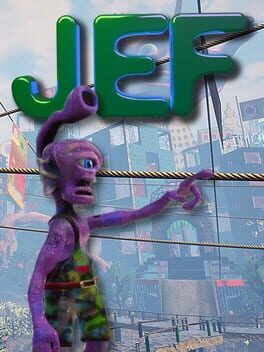

![NieR Re[in]carnation](https://images.igdb.com/igdb/image/upload/t_cover_big/co7bm4.jpg)
